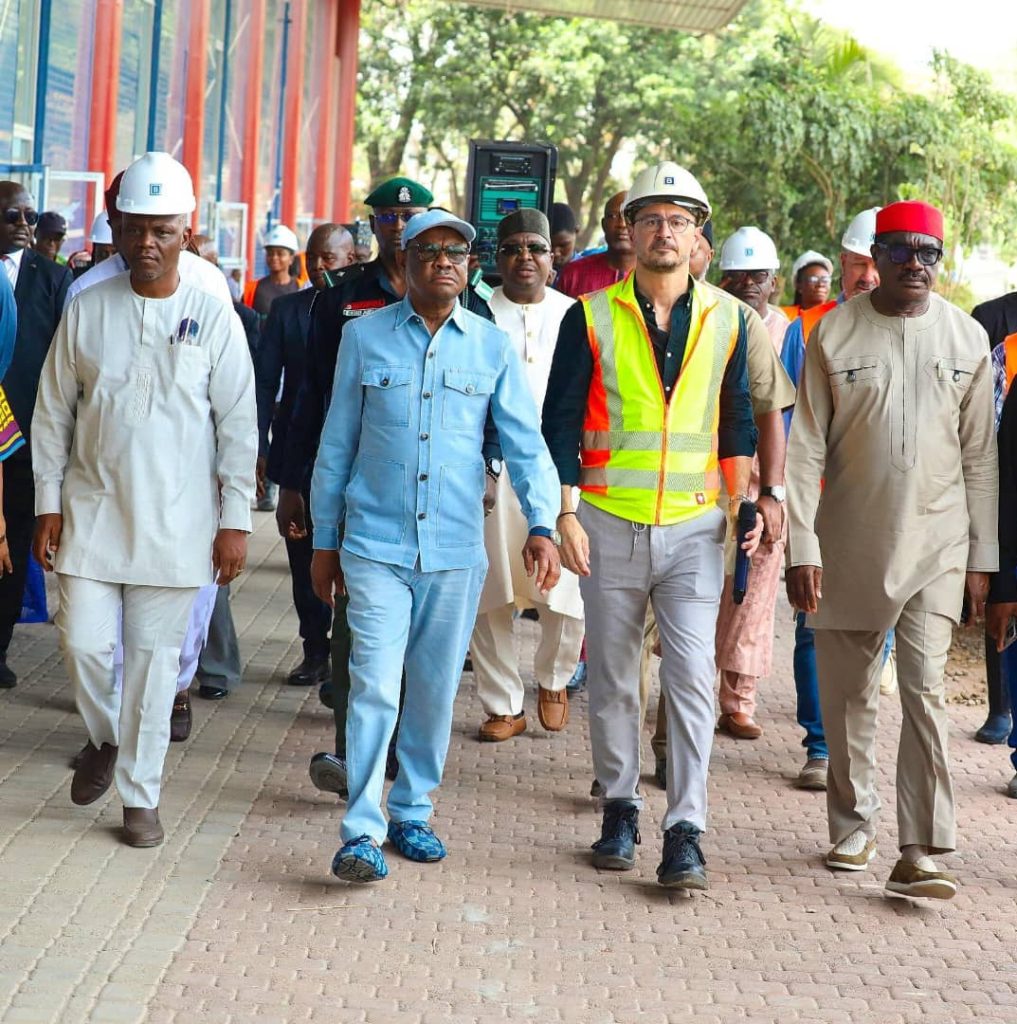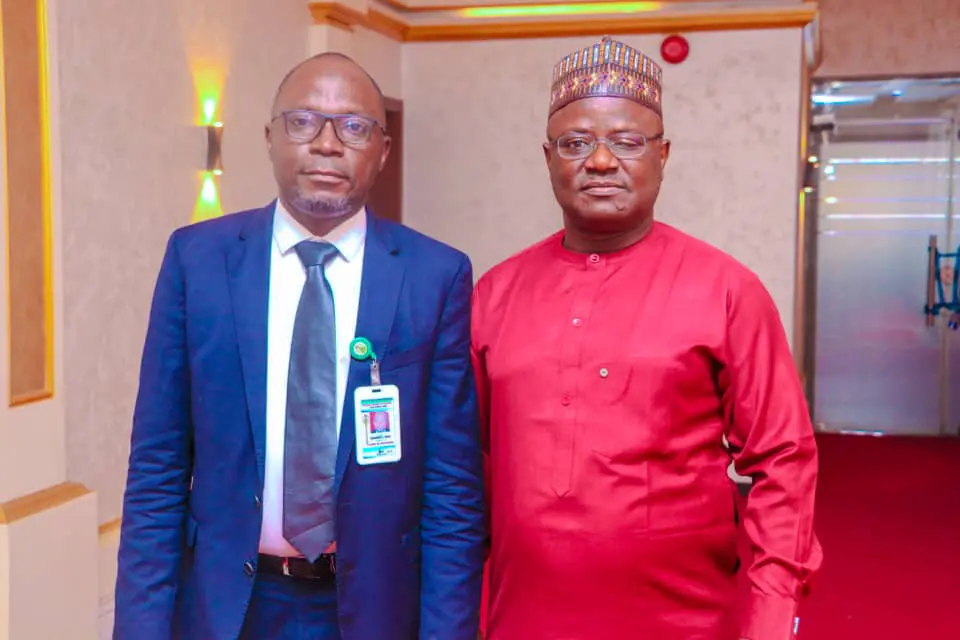Politics
Fox host pulls himself out of the running to be Treasury Secretary
Published
5 months agoon
By
Ekwutos Blog- Larry Kudlow served in top economic role in Donald Trump’s first administration
- Sign up for the latest with DailyMail.com’s U.S politics newsletter
- Follow DailyMail.com’s presidential election live blog for all the latest news and updates
Fox Business host Larry Kudlow pulled himself from consideration from a top economic job in the upcoming Trump administration just hours after it was reported he was being considered for a job.
Kudlow met with Trump at Mar-a-Lago in Florida this week and was being considered to lead the National Economic Council as well as the plum Treasury Department cabinet post, according to the Wall Street Journal.
But on Friday, he yanked his name from consideration.
‘Larry Kudlow recently signed a new deal to continue hosting his eponymous program on FOX Business and has no plans to leave his current role helming one of the highest rated shows on the network,’ a Fox News spokesperson said in a statement with DailyMail.com.
It comes after Trump tapped another Fox Newshost, Pete Hegseth, to lead the Defense Department earlier this week.
Kudlow, 77, is a conservative TV host who served as Trump’s director of the National Economic Council during his first term from April 2018 until he left office in January 2021.
After leaving office, Kudlow joined the Fox Business Network as a television host with a weekday program where he has regularly touted Trump’s economic proposals and has even had the ex-president on his show for interviews.
Kudlow was the latest name floated for a top economic job in the upcoming Trump administration.
The president-elect has rolled out a series of nominations, but he has yet to announce his picks to lead the Treasure Department, Commerce Department and Labor Department as well as who will fill key White House economic policy roles.
Other names that have been floated as potential Treasury Secretary nominees include hedge fund executive Scott Bessent who met with Trump in Florida last week and again on Friday.
Billionaire businessman and Trump’s longtime friend Howard Lutnick is also potentially up for the job. The Cantor Fitzgerald CEO is helping lead the Trump transition team and has been a vocal supporter of Trump’s economic proposals including tariffs.
Robert Lighthizer, who served as U.S. trade representative in Trump’s first term, and Apollo Global Management CEO Marc Rowan are also both in consideration for top economic jobs.
Another billionaire and Trump supporter John Paulson recently ruled himself out of consideration for a role in the upcoming administration.

Larry Kudlow speaking outside the White House while serving as National Economic Council director during Trump’s first term in October 2018

Howard Lutnick

Scott Bessent
According to the Wall Street Journal, Trump is continuing his conversations with candidates on Friday.
Kudlow has been a vocal supporter of Trump’s agenda including the mass deportation of undocumented immigrants in the United States while criticizing Democrats’ legislation including the CHIPS Act and the bipartisan infrastructure deal.
While serving in Trump’s first term, Kudlow acknowledged that it is Americans and hot China who pay for tariffs, but he argued China’s GDP would suffer.
More recently, he argued for the use of tariffs as a negotiating tool and a pathway to free trade while touting proposed corporate tax cuts also pushed by Trump.
You may like


PRESIDENT TINUBU CONDEMNS LATEST ATTACK IN PLATEAU, CHARGES GOVERNOR MUTFWANG WITH RESOLVING UNDERLYING COMMUNAL ISSUES


Wike hails 95% implementation of FCT 2024 budget, unveils key projects


Benue Govt moves to block Peter Obi’s visit amid Alia’s defection rumours


Nasarawa Assembly confirms new clerk, deputy


Rivers: Refund N300m Fubara gave you – Ibas tells NBA


War: Ukraine loses 235 soldiers in 24 hours
Politics
Wike hails 95% implementation of FCT 2024 budget, unveils key projects
Published
3 hours agoon
April 14, 2025By
Ekwutos Blog
The Minister of the Federal Capital Territory (FCT), Barr. Ezenwo Nyesom Wike, has announced a landmark 95 percent implementation of the 2024 statutory budget, describing the achievement as unprecedented in the history of the FCT.
Wike made this known during a media briefing after inspecting several critical infrastructure projects across the Territory, including major roads at Life Camp and Katampe, as well as the ongoing renovation of the International Conference Centre, Abuja.
“I can tell you we’ve done not less than 95 percent of the budget implementation. That is historic. It has never happened before. And if you look at the projects there, you will see that there is no project that is in the 2024 budget that we have not touched,” he stated.
He attributed the progress to the National Assembly’s decision to extend the lifespan of the 2024 FCT statutory budget until June 2025, which he said enabled the Administration to sustain funding and accelerate delivery on major projects.
Wike also revealed that the 2025 statutory budget had already been submitted to the National Assembly and expressed hope that its timely passage would maintain the current momentum and support the completion of key infrastructure across the FCT.
During the tour, the Minister expressed satisfaction with the pace and quality of work, commending contractors for adhering to timelines and maintaining high standards.
Among the projects visited was the 4-kilometer six-lane dual carriageway linking Life Camp Junction to Ring Road III, currently under construction by Julius Berger. Once completed, the road will significantly improve connectivity between the districts of Kado, Karmo, Gwarimpa I, Dape, Ido-Gwari, Saburi, and Dei-Dei.
Another major project nearing completion is the access road from Nnamdi Azikiwe Expressway (by N16) to the Judges’ Quarters in Katampe District. This route will also connect the N20 (Wole Soyinka Way) in Jahi District with Katampe and Maitama, enhancing mobility in the area.
Wike expressed particular delight at the progress of the International Conference Centre renovation, which he described as rapidly advancing.
“These projects will be inaugurated by Mr. President during his second-year anniversary celebrations. We have gone to the International Conference Centre, which is almost ready. The first phase of the N5 will also be ready by the end of May,” he said.
Politics
Benue Govt moves to block Peter Obi’s visit amid Alia’s defection rumours
Published
4 hours agoon
April 14, 2025By
Ekwutos Blog
The Benue State Government is reportedly making moves to block a planned visit by Labour Party presidential candidate in the 2023 general election, Mr Peter Obi, to camps housing Internally Displaced Persons (IDPs) in the state.
Obi, whose post-election activities have prominently included humanitarian outreach to victims of violence across the country, was said to have planned a visit to some of the IDP camps in Benue.
The former Anambra State governor, in recent weeks, visited IDP camps in Plateau, Southern Kaduna and Nasarawa states, meeting with displaced families, donating relief materials and advocating for urgent government intervention.
His visit to Plateau State drew national attention after he held talks with Governor Caleb Mutfwang and visited victims of herdsmen attacks.
According to reliable sources, Obi’s team had reached out to the Benue State Emergency Management Agency (BSEMA) through its Executive Secretary, Sir James Iorpuu, to officially notify the agency and seek access to designated camps for the visit.
However, it appears the move has sparked a political storm within Benue’s corridors of power.
Top government officials reportedly advised Governor Alia against granting Obi access to the IDP camps, citing political undertones.
The visit, they argued, could be perceived as a calculated move by former Governor Samuel Ortom, a staunch supporter of Peter Obi during the 2023 presidential election, to revive his political relevance and embarrass the current administration.
Beyond the Ortom factor, sources also revealed that the decision to stop Obi’s visit was influenced by wider political calculations.
“It is believed that allowing Obi access at this time could fuel ongoing speculations that Governor Alia is considering leaving the All Progressives Congress (APC) amid tensions with some national leaders of the party.
“The governor is very conscious of his relationship with the Presidency and party hierarchy. Allowing Obi’s visit would not only trigger local political drama with Ortom but might also be interpreted in Abuja as a subtle alignment with the opposition at a time when Alia is battling internal party issues. This is not the kind of message he wants to send to the President.
“Such an association, especially with a high-profile opposition figure like Obi, could be politically damaging for Alia, who has been working to consolidate his hold on the state and maintain good standing with President Bola Tinubu’s administration,” a source told Ekwutosblog on Monday.
It would be recalled that in the February 25, 2023 presidential poll, Obi pulled a stunning performance in Benue State, securing over 308,000 votes, a figure that shocked many given the dominance traditionally enjoyed by the two major parties – APC and PDP.
His victory in the state was largely attributed to the support of Ortom and a groundswell of youth-driven, faith-based and middle-class backing.
Following this backdrop, sources disclosed that Governor Alia was convinced by his inner circle to forestall Obi’s visit to avoid reigniting political rivalries or offering Ortom and the Labour Party a platform to reassert influence in the state.
As a result, the governor reportedly instructed his Chief Press Secretary, Tersoo Kula, to issue a public statement cautioning against what it described as “unapproved high-profile visits” to the state.
“For anyone considering a visit to Benue State without the Governor’s knowledge, it is imperative to reconsider such plans, as the safety and security of individuals in this regard cannot be guaranteed,” he warned.
Though the statement fell short of directly naming Peter Obi, insiders confirmed that it was a veiled warning aimed at dissuading the former presidential candidate from proceeding with his proposed outreach.
One government source, speaking anonymously, said, “The governor is not comfortable with Obi’s visit, especially with the political undertones it carries.
“The camps are a sensitive issue and we cannot allow anyone to politicise the suffering of our displaced people.”
As of the time of filing this report, neither Obi’s camp nor the Labour Party has issued an official statement regarding the restriction.
However, a source close to the former governor disclosed that the visit was purely humanitarian and part of Obi’s ongoing national outreach to communities affected by violence and displacement.
Politics
Nasarawa Assembly confirms new clerk, deputy
Published
5 hours agoon
April 14, 2025By
Ekwutos Blog
The Nasarawa State House of Assembly resumed plenary on Monday after the Sallah break, confirming Mr. Ibrahim Abdulazeez Musa as the substantive Clerk of the House.
The confirmation was announced by the Speaker, Dr. Danladi Jatau, during proceedings in Lafia.
Musa had been serving in an acting capacity since December 6, 2023, following the ill health of the former Clerk, Mr. Ego Maikeffi Abashe, who passed away on March 1, 2025.
In the same session, the Speaker also announced the appointment of Mr. Paul Okugya as the Deputy Clerk of the House. Prior to his new role, Okugya served as Director of Protocol.
The Speaker congratulated both appointees on their elevation and wished them success in their new responsibilities.
Jatau also led members of the Assembly in observing a minute of silence in honour of the late Clerk, Mr. Abashe.
Meanwhile, two bills were introduced for first reading during the plenary session.
The first, a private member bill, titled “A Bill for a Law to Establish Lafia General Hospital and Other Related Matters Thereto,” was presented by Hon. Solomon Yakubu Akwashiki, who represents Lafia Central Constituency.
The motion was seconded by Barr. Esson Mairiga, member representing Lafia North Constituency.
The second bill on the order paper was “A Bill for a Law to Amend the Re-enacted Nasarawa State House of Assembly Service Commission Law 2023 and Other Incidental Matters Thereto.”
The motion for first reading was moved by the House Leader, Hon. Suleiman Azara, and seconded by the Minority Leader, Hon. Luka Iliya Zhekaba.
The bill has been scheduled for second reading on April 29, 2025, while deliberation on Hon. Akwashiki’s bill is slated for April 28, 2025.

PRESIDENT TINUBU CONDEMNS LATEST ATTACK IN PLATEAU, CHARGES GOVERNOR MUTFWANG WITH RESOLVING UNDERLYING COMMUNAL ISSUES

Wike hails 95% implementation of FCT 2024 budget, unveils key projects

Benue Govt moves to block Peter Obi’s visit amid Alia’s defection rumours
Trending

 Trending6 months ago
Trending6 months agoNYA demands release of ‘abducted’ Imo chairman, preaches good governance
- Business6 months ago
US court acquits Air Peace boss, slams Mayfield $4000 fine

 Politics6 months ago
Politics6 months agoMexico’s new president causes concern just weeks before the US elections
- Entertainment6 months ago
Bobrisky transferred from Immigration to FCID, spends night behind bars
- Entertainment6 months ago
Bobrisky falls ill in police custody, rushed to hospital

 Politics6 months ago
Politics6 months agoRussia bans imports of agro-products from Kazakhstan after refusal to join BRICS

 Politics6 months ago
Politics6 months agoPutin invites 20 world leaders
- Politics1 year ago
Nigerian Senate passes Bill seeking the establishment of the South East Development Commission.

